
Why Montpellier Became My Dream Retirement Destination
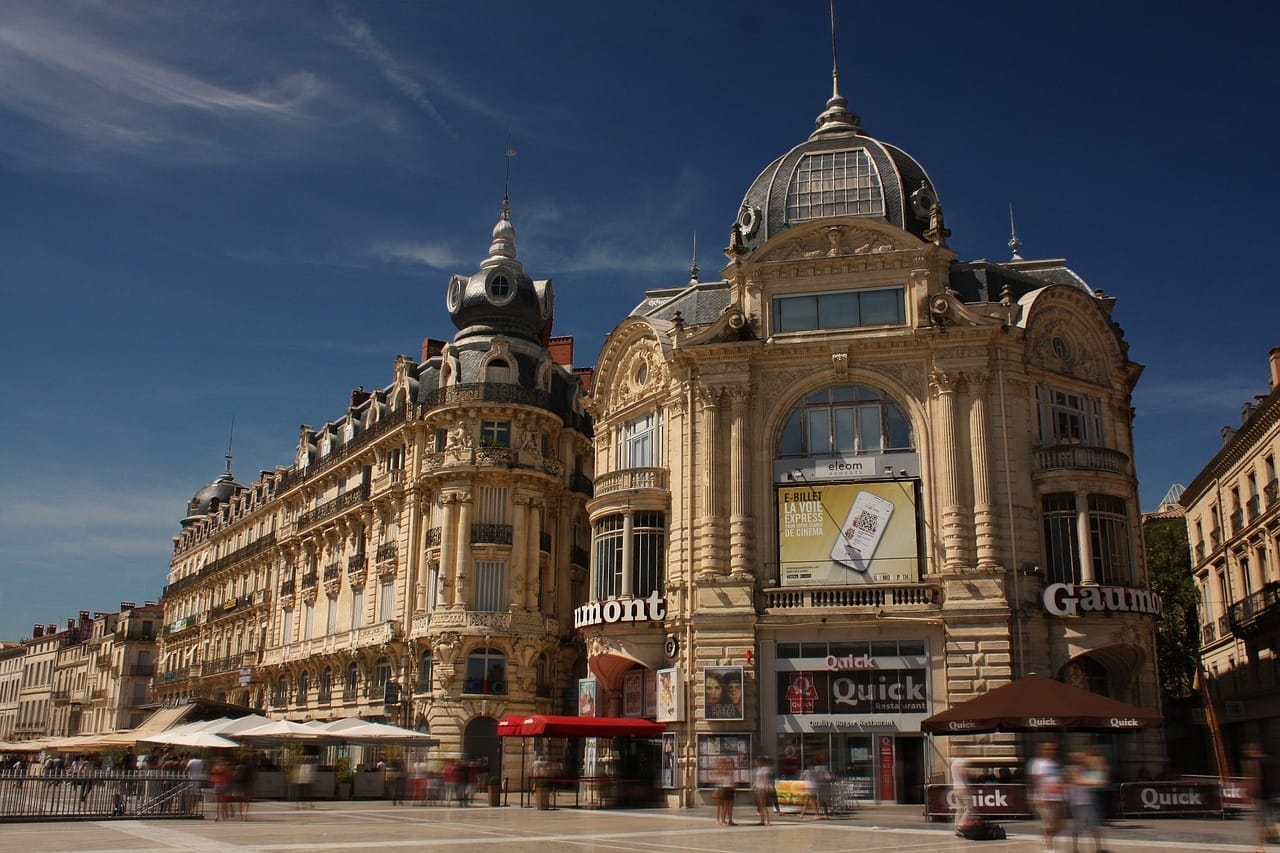
The taxi driver who picked me up from Montpellier's airport three years ago asked me the same question I'd been asking myself for months: "Why Montpellier?" I remember watching the Mediterranean landscape blur past the window, cypress trees standing like sentinels, vineyards rolling toward distant hills, and realizing I didn't have a simple answer. Not the kind that fits neatly into small talk, anyway.
Now, having spent three years living in this sun-drenched city in southern France, I can tell you exactly why Montpellier has become more than just my retirement destination. It's become the place where I've learned to live again, differently than before, but perhaps more fully.
The Search That Led Me Here
My retirement from journalism came suddenly, the way these things sometimes do when you've been in the business for forty years. One day, I was filing stories from Ottawa's Parliament Hill; the next, I was staring at an empty calendar and wondering what comes after a lifetime of deadlines.
My husband David and I had always talked about France. Not Paris, we'd done that chapter, romantic weekends and all, but somewhere quieter, somewhere with weather that didn't punish you for six months of the year. We wanted proximity to culture without the crush of tourists, access to nature without isolation, and a community we could actually join rather than simply observe.
We spent months researching French cities. Lyon felt too industrial, Nice too expensive and crowded, Toulouse intriguing but somehow not quite right. Then a friend who'd spent a sabbatical year in Languedoc mentioned Montpellier almost casually over dinner. "It's a university town," she said. "Young, vibrant, but not frantic. And the light, you'll love the light."
She was right about the light. The quality of sunshine in Montpellier has a crystalline clarity that makes everything seem more vivid, more present. It's the kind of light painters chase.
A City That Balances Old and New
What struck me first about Montpellier was its refusal to be just one thing. The medieval old town, L'Écusson, spreads out in a tangle of narrow streets where buildings lean toward each other like old friends sharing secrets. Walk ten minutes in any direction and you'll find yourself in neighborhoods of sleek modern architecture, buildings that wouldn't look out of place in Copenhagen or Barcelona.
This isn't a city frozen in amber, preserved for tourists. It's a vibrant, living city where students rush to lectures, where markets are held every morning, and where the tram system efficiently connects old quarters with new developments. The population of 300,000 includes 70,000 university students, which means Montpellier pulses with a youthful energy that many retirement destinations lack.
I find this balance essential. At sixty-seven, I don't want to live in a place that feels like an extended-care facility disguised as a resort. However, I also do not want the frenetic pace of major metropolitan centers. Montpellier offers something in between: a sophisticated urban experience scaled to human proportions.
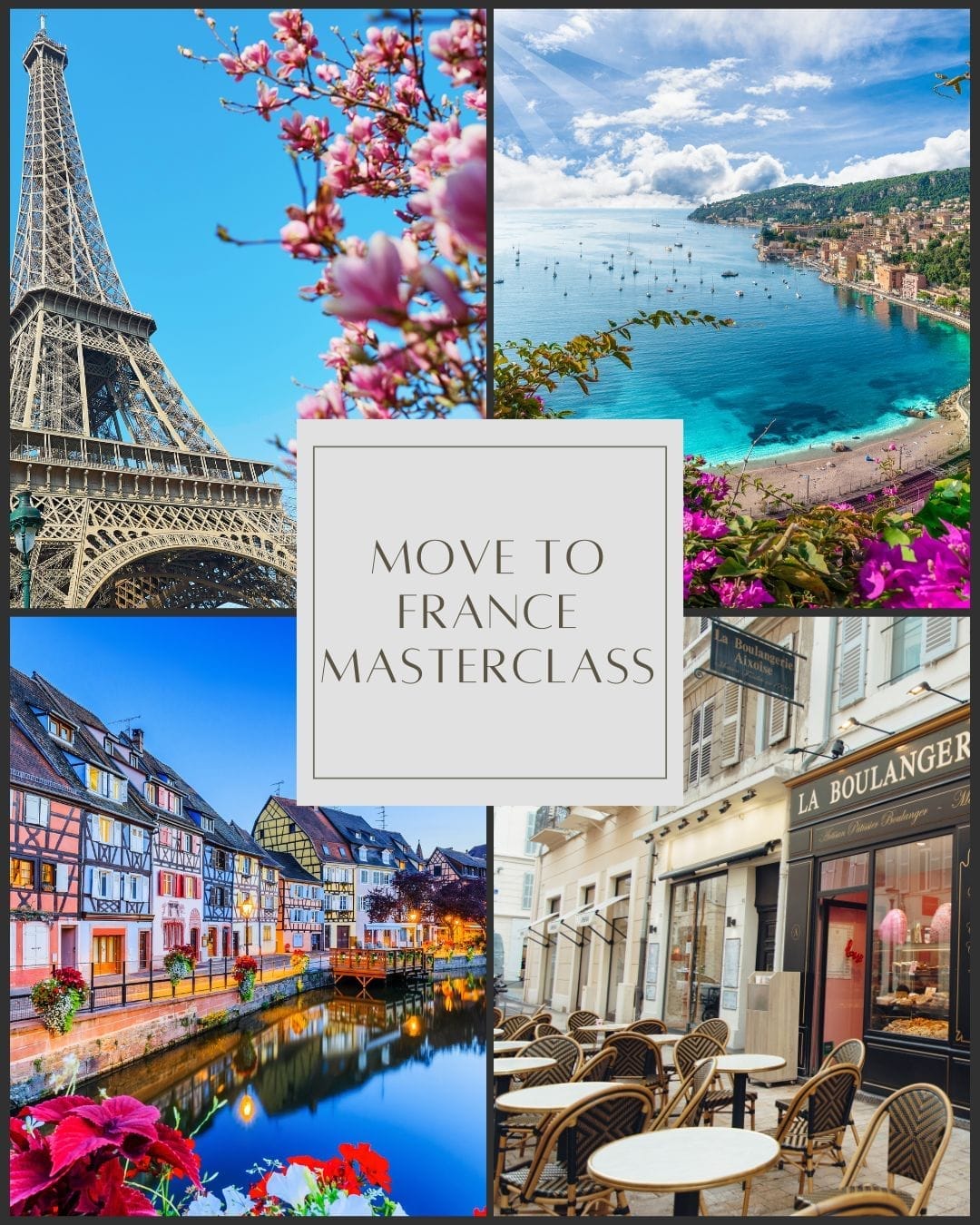
If you're seriously considering a move to France, I encourage you to explore our Move to France Masterclass. This comprehensive online course provides detailed guidance on every aspect of relocating to France, from visa applications and housing searches to cultural integration and community building. Learn from experts and experienced expats who have successfully navigated the journey you're contemplating.
The Mediterranean Without the Price Tag
Let's talk about something practical: money. Retirement on a fixed income means paying attention to costs, and Montpellier delivers remarkable value compared to other Mediterranean destinations. Our two-bedroom apartment in the Beaux-Arts neighborhood costs roughly 40% less than equivalent properties in Nice or Aix-en-Provence.
The beaches are twelve kilometers away. Close enough for spontaneous afternoon visits, far enough that real estate prices remain reasonable. We can have dinner at an excellent restaurant for 30 euros per person, buy fresh produce at morning markets for a fraction of what we paid in Ottawa, and enjoy world-class cultural events without London or Paris price tags.
But it's not just about what things cost. It's about what you get for what you spend. The French healthcare system, which foreigners can access through various visa options, provides coverage that makes Canadian healthcare look sparse by comparison. My monthly contributions are reasonable, and the quality of care is exceptional.
The Weather That Changes Everything
I spent forty years of Ottawa winters telling myself I was tough, that I didn't mind the cold. You lie to yourself about these things when you have no choice. Retirement gave me a choice, and I chose sunshine.
Montpellier enjoys roughly 300 days of sunshine annually. The Mediterranean climate means mild winters where temperatures rarely drop below 5°C and summers that are hot but not oppressively humid. The infamous Mistral wind that batters Provence barely touches us here.
Instead, we get a gentler maritime breeze that makes even August afternoons bearable.
This weather isn't just pleasant, it's transformative. I walk more, sit outside more, and engage with the world more. David, who suffered from seasonal depression in Canada, hasn't had a difficult winter since we arrived. The simple gift of consistent sunshine has opened up possibilities we didn't even know we were missing.
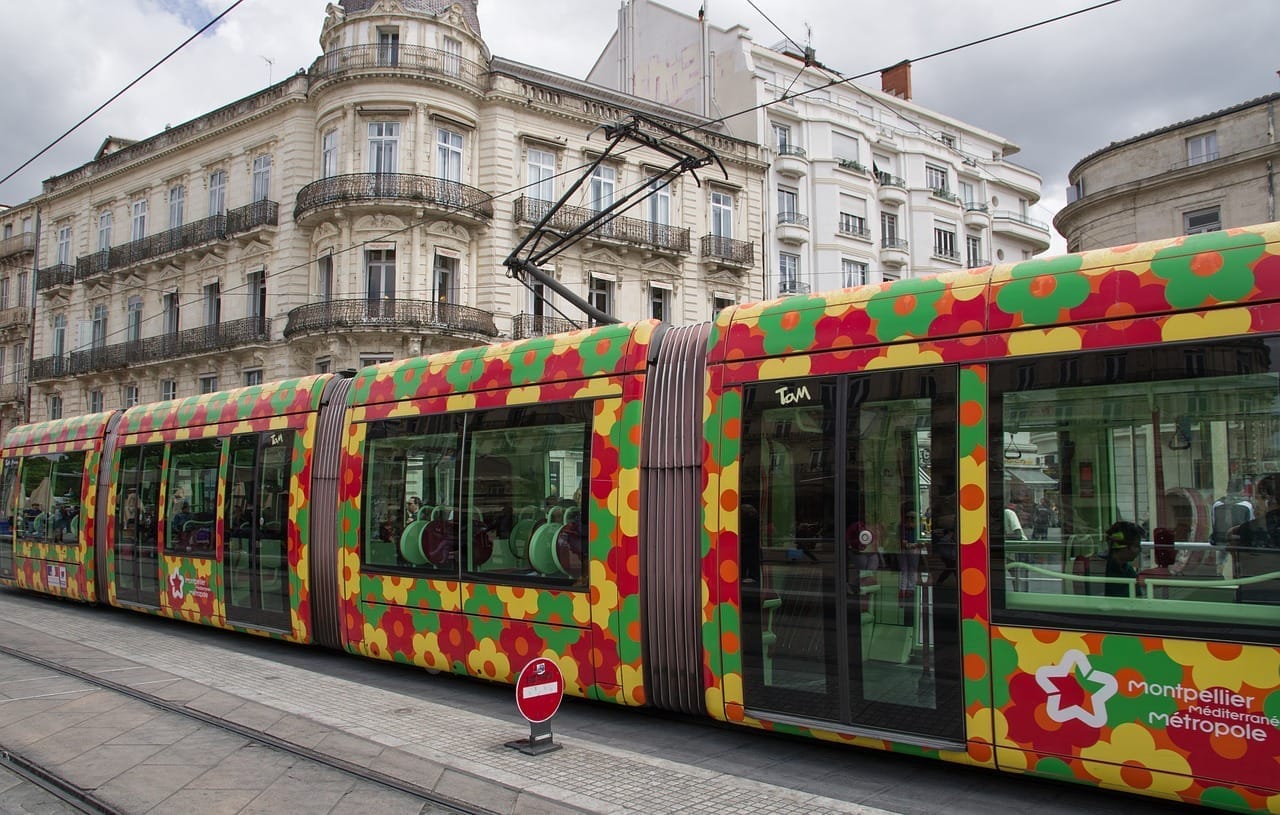
Learning to Live at French Speed
The cultural adjustment was harder than I expected, and I say this as someone who's reported from dozens of countries. Living somewhere is different from visiting. You can't be a tourist in your own life.
Learning French at sixty-four felt like trying to rewire my brain. I'd studied it in school, of course—every Canadian does—but conversation was another matter entirely. For months, I stumbled through interactions at the bakery, the pharmacy, the post office, accumulating small humiliations and occasional victories.
But here's what I discovered: the struggle itself became meaningful. Each successful conversation, each new friendship formed in fractured French, each moment of genuine comprehension felt like an achievement. At an age when many people stop learning, I was learning intensely. It kept me sharp, engaged, sometimes frustrated, but never bored.
The rhythm of French life took longer to absorb. Everything closes for lunch. Everything. Banks, government offices, and many shops shut down for two or three hours in the middle of the day. At first, this frustrated my North American efficiency. Now I understand it as a different relationship with time, one that prioritizes human experience over maximum productivity.
The Art of Slow Living
Montpellier taught me what "slow living" actually means, beyond the Instagram hashtags. It's not about doing nothing. It's about doing things with attention, with presence, without the constant pressure of optimization.
My days now have a different shape. Morning coffee on our small balcony, watching the city wake up. A walk to the market at Place de la Comédie, where I know the vendors by name and they know my preferences. Lunch that lasts as long as the conversation requires. Afternoon reading in Jardin des Plantes, the botanical garden that's become my refuge. Evening aperitifs with neighbors who've become friends.
This isn't a vacation schedule; it's a life. A sustainable rhythm that feels neither rushed nor empty. After decades of deadline-driven existence, I've discovered the profound satisfaction of days structured by pleasure rather than obligation.
Unlock the secrets of the world's most successful entrepreneurs with the
Global Wealth Navigator Newsletter
Discover the world's best destinations offering a lower cost of living paired with an enriched quality of life with the Global Wealth Navigator Newsletter. Whether you're a retiree or an entrepreneur, we dive into strategies that open doors to international investments, tax optimizations, and discover the finest destinations offering a superior quality of life. Don't let borders or routine define you; lets find your ideal spot in the world, regardless of your income bracket.
Building Community in a New Country
The loneliness of expat life is real, and no amount of beautiful weather or excellent food can fully compensate for the absence of community. This was my biggest fear about moving: that we'd end up isolated, tourists in our own lives, perpetually on the outside looking in.
Montpellier made community-building easier than I expected. The city's international population includes substantial numbers of retirees from across Europe and North America, which means ready-made networks of people navigating similar transitions. Within weeks, we'd connected with other English speakers through meetup groups, language exchanges, and expat organizations.
But the real breakthrough came from engaging with French community life. I joined a local book club that meets monthly at a café near our apartment. My French still isn't perfect, but the members treat my mistakes with patience and my occasional insights with genuine respect.
David found a photography group that organizes weekly outings. We've attended neighborhood association meetings and volunteered at cultural events, gradually weaving ourselves into the social fabric.
The key, I think, is approaching integration as a genuine goal rather than a superficial gesture. Learning the language matters. Understanding local customs matters. Showing up matters. Montpellier rewards this effort with a warmth that belies the stereotype of French standoffishness.
Cultural Richness Without the Tourist Crush
One of my former colleagues, upon hearing about our move, asked if I'd get bored without "real" culture. By which she meant, I suppose, the kind of marquee institutions you find in capital cities. But Montpellier's cultural life is anything but provincial.
The city supports multiple theaters, an opera house, numerous music venues, several museums, and dozens of art galleries. The summer festival season brings world-class performances to outdoor venues. The university ensures a constant stream of lectures, exhibitions, and intellectual events. Within a two-hour drive, we can reach Barcelona, Marseille, or Toulouse for bigger events when the mood strikes.
What makes this cultural landscape special is its accessibility. No fighting crowds, no booking tickets months in advance, no feeling that you're checking boxes on a tourist itinerary. We can decide on Tuesday that we want to see a play on Wednesday, and usually, we can. Art becomes an integral part of daily life, rather than being reserved for special occasions.
The surrounding region amplifies this richness. The Languedoc wine country spreads out in every direction, offering endless opportunities for day trips to vineyards, medieval villages, and ancient sites. The Cévennes mountains lie an hour to the north, the Camargue marshlands an hour to the east. The Mediterranean's beaches are a quick tram ride away.
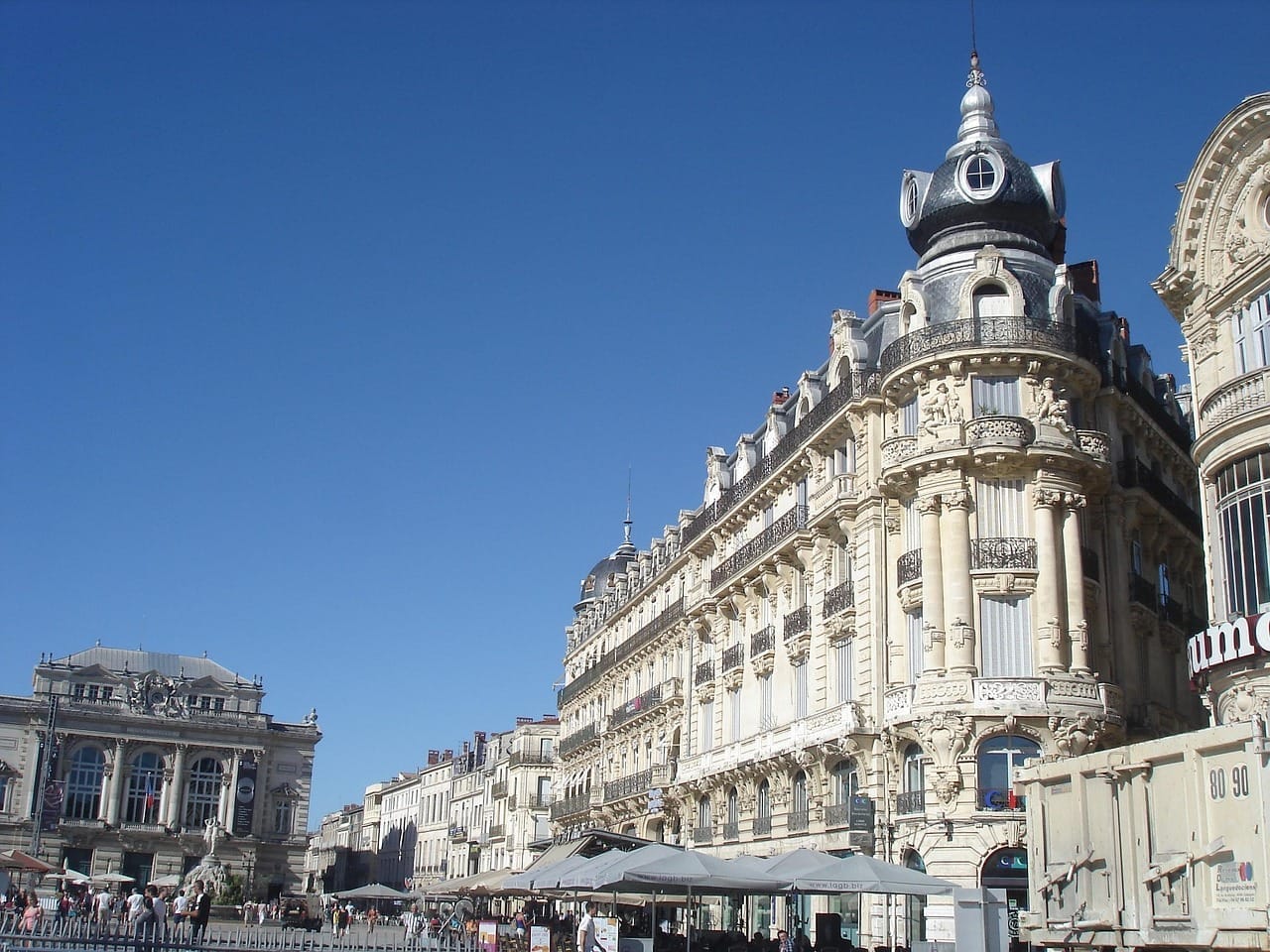
The Practical Realities of Retirement Abroad
Romance and cultural richness matter, but so do practical considerations. Moving to another country at retirement age involves navigating bureaucracy that can test even patient souls.
The French visa process for retirees is thorough but manageable. We needed to prove adequate income, show health insurance coverage, and demonstrate language ability (though requirements vary by visa type). The paperwork was extensive, the waiting periods sometimes frustrating, but ultimately everything worked out.
Banking took time to establish. Opening a French bank account requires patience and documentation, but having a local bank account simplifies everything else. We kept our Canadian accounts active for pensions and investments, which creates some currency exchange complexity but nothing insurmountable.
Healthcare deserves special mention. The French system operates differently from what North Americans are accustomed to, but once you understand it, the quality of care is superb. My general practitioner spends thirty minutes with me at each appointment. Specialists are accessible without the multi-month waits common in Canada. Prescription costs are a fraction of what we used to pay.
Transportation in Montpellier is excellent. The modern tram system efficiently reaches most parts of the city. We kept one car for regional trips, but many days we don't use it at all. The walkability of the city center means that daily errands can be accomplished on foot, which suits our desire for active aging.
What I Miss and What I've Gained
Honesty requires acknowledging the cost of this choice. I miss my children and grandchildren intensely. Video calls help, but they're not the same as hugs. We budget for trips back to Canada twice a year, and family visits us when they can, but the distance creates a persistent ache.
I miss the ease of complete fluency, of understanding every nuance in conversation, of making people laugh with well-timed jokes. I miss certain foods that simply don't exist here, as well as certain cultural references that nobody shares. Some days, I miss the familiarity of a place where I understood all the unspoken rules.
But against these losses, I weigh what I've gained. I've gained weather that allows year-round outdoor living. I've gained a slower, more intentional rhythm of days. I've gained access to wine regions, beaches, mountains, and medieval villages, all within easy reach. I've gained the intellectual stimulation of learning a language and culture at an age when many people stop challenging themselves.
Most importantly, perhaps, I've gained a sense of adventure, a feeling that life isn't finished just because a career is. Retirement in Montpellier hasn't been about withdrawing from life; it's been about engaging with it differently, on terms that prioritize experience over achievement.
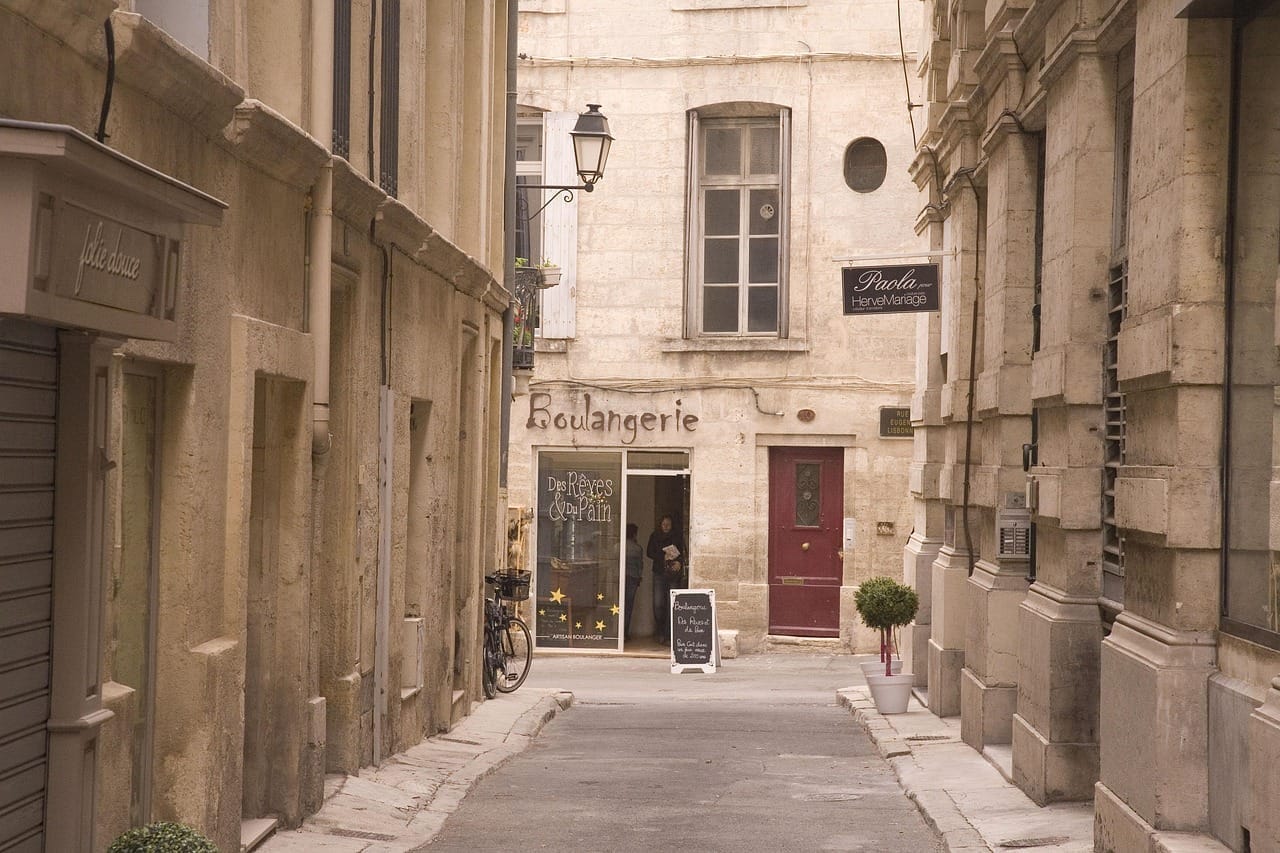
The Question of Belonging
After three years, do I feel French? No, and I never will. I'm Canadian, shaped by that identity in ways too deep to change. But do I feel at home in Montpellier? Increasingly, yes.
Home isn't about geography or nationality. It's about the accumulation of daily rituals, familiar faces, known places, and comfortable routines. It's about waking up and knowing where to buy the best bread, how to greet neighbors, what the weather will likely do, and where to walk when you need to think.
Montpellier has become this for me. The taxi driver who asked why I chose this city couldn't have understood my answer then because I didn't understand it myself. Now I know: I chose Montpellier because it offered the possibility of a different kind of aging - one that involved sunshine and slow meals, cultural richness and linguistic challenges, community and adventure.
The city has delivered on that possibility, but it has asked something in return: the willingness to be uncomfortable, to be a beginner again, to accept that belonging takes effort and time. At sixty-seven, I've learned that discomfort isn't something to avoid but something to embrace as evidence of growth.
Advice for Those Considering the Move
Friends back in Canada sometimes ask if they should follow our example. My answer is always the same: it depends on what you're looking for and what you're willing to give up.
Montpellier works wonderfully if you want access to a Mediterranean lifestyle without incurring extreme costs, if you value cultural opportunities over resort amenities, if you're willing to seriously engage with learning French, and if you can tolerate being away from family.
It's not ideal if you need to be near grandchildren daily, if you're unwilling to learn the language, if you require a large English-speaking community, or if bureaucratic complexity makes you anxious. This isn't a place where you can live entirely in English, nor would you want to; that would mean missing half the point.
I'd encourage anyone seriously considering Montpellier to spend extended time here first. Not a vacation, as those don't reveal what daily life actually involves, but rather a month or two living in an apartment, shopping at markets, navigating public services, and experiencing the city in different seasons.
If you're drawn to the idea of retiring abroad, particularly to France, consider exploring the Move to France Masterclass. The online course covers everything from visa requirements to healthcare navigation, cultural adaptation to community building, all the practical details I wish someone had compiled for us before we made the leap.
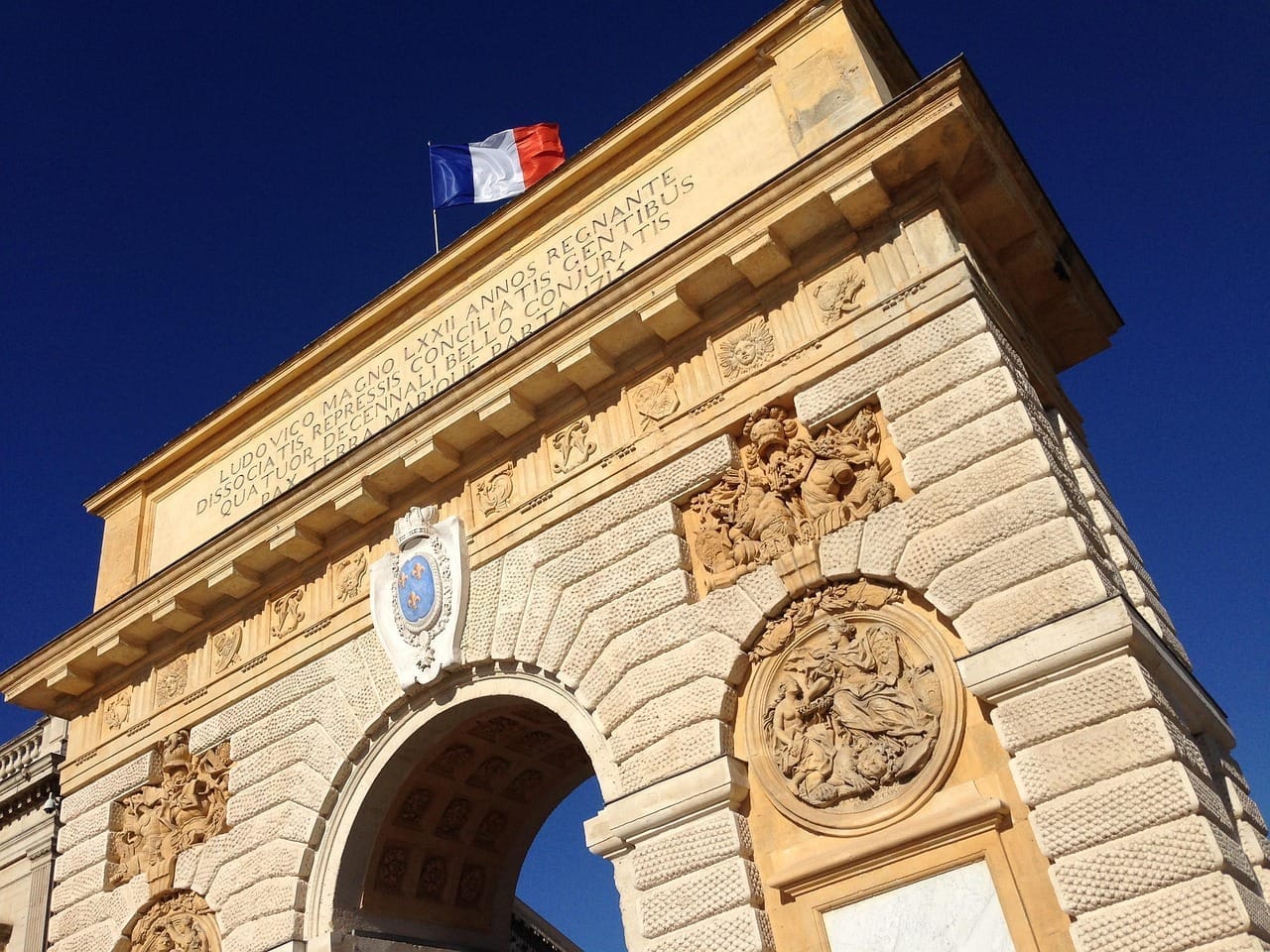
Looking Forward
Three years in, I find myself thinking less about whether this was the right decision and more about what comes next. David and I discuss taking a longer trip through Italy next year, learning to cook proper French dishes, and possibly volunteering with one of the refugee support organizations in the city.
These aren't the kinds of plans you make when you're just marking time until the end. They're the plans of people who still feel engaged with life, are curious about possibilities, and are open to new experiences. Montpellier has given us that gift—the gift of not being finished.
When people ask why Montpellier became my dream retirement destination, I sometimes joke that I chose it for the light. And that's partially true; the Mediterranean sunshine really is transformative. However, the deeper truth is that I chose Montpellier because it promised me a retirement that felt like a new beginning rather than an end.
The city has kept that promise. My retirement here has been many things—challenging, rewarding, sometimes frustrating, and often joyful—but it has never been boring; it has never felt like I was simply running out the clock. At sixty-seven, living in a foreign country, struggling with a difficult language, building new communities and routines, I feel more alive than I did at the height of my career.
That's why Montpellier. Not for what it is, exactly, but for what it made possible. A chance to reinvent life on different terms, to choose adventure over comfort, to remain curious and engaged rather than settling into predictable routines.
The taxi driver who first asked me that question wouldn't understand this answer. It's too complicated, too personal, too entwined with questions about aging, purpose, and the kind of life worth living. But anyone considering a similar move might understand perfectly. Because when you're standing at the threshold of retirement, looking at decades of unstructured time stretching ahead, the question isn't really "Why Montpellier?"
The question is: What kind of person do you want to be in these final chapters? What experiences matter more than comfort? What risks are worth taking while there's still time?
For me, the answer to those questions led to Montpellier. For you, it might lead somewhere entirely different. But wherever it leads, I hope you'll have the courage to follow, because the only regret I have about this decision is that we didn't make it sooner.

If you're seriously considering a move to France, I encourage you to explore our Move to France Masterclass. This comprehensive online course provides detailed guidance on every aspect of relocating to France, from visa applications and housing searches to cultural integration and community building. Learn from experts and experienced expats who have successfully navigated the journey you're contemplating.
Written by Susan Grant
From Ottawa to Montpellier, Susan has crafted a serene life after a career in journalism. Her stories reveal the beauty of everyday moments—markets, neighbors, and slow mornings. With grace and wit, she shares the emotional and practical journey of retirement in France.
📍 From Ottawa, now in Montpellier
Susan writes with depth and grace about retirement and everyday beauty in France’s slower-paced southern regions.
Read Articles by Susan →
Global Citizen Life
© 2023 Global Citizen Life
All rights reserved
